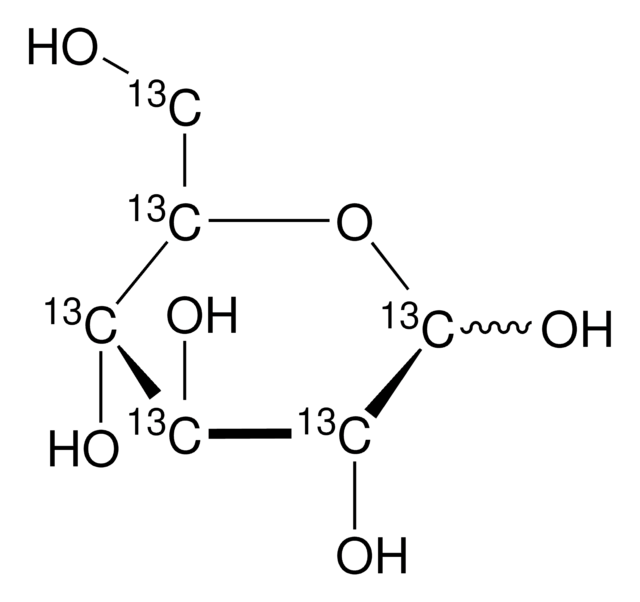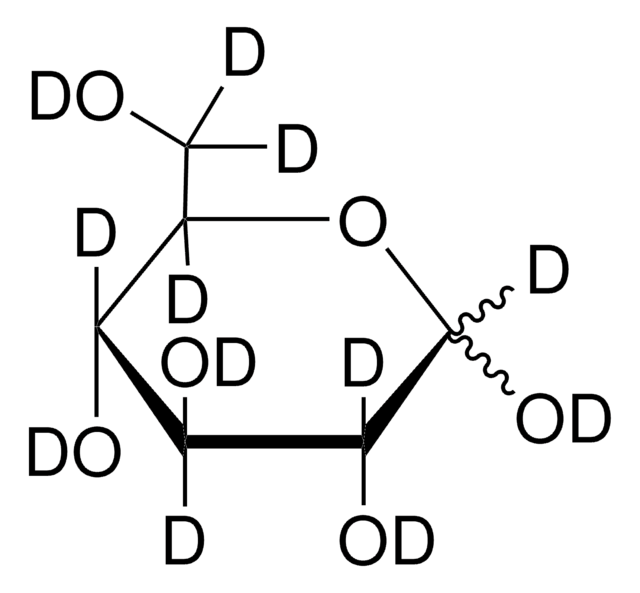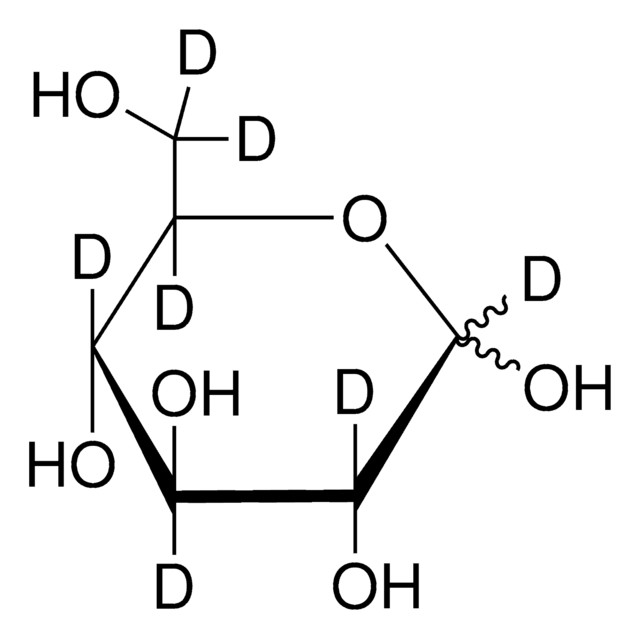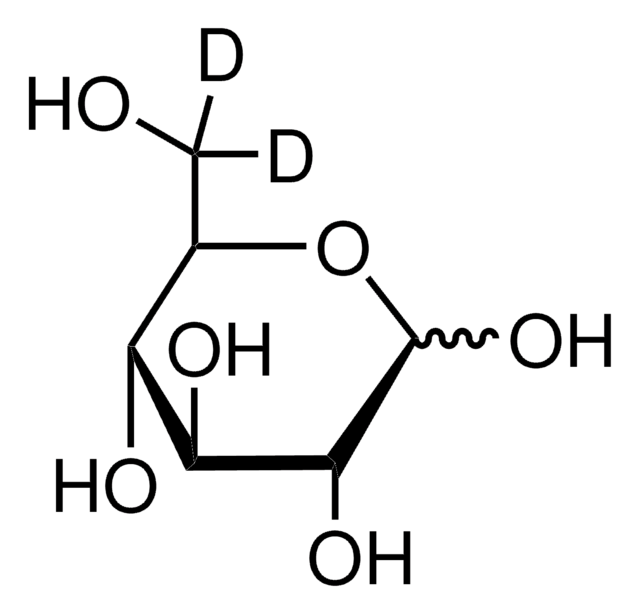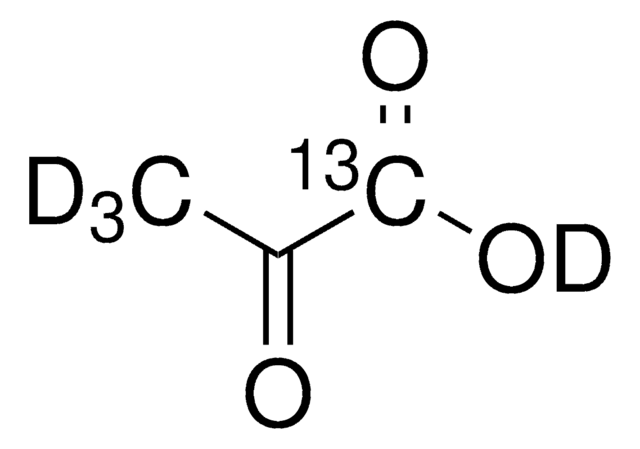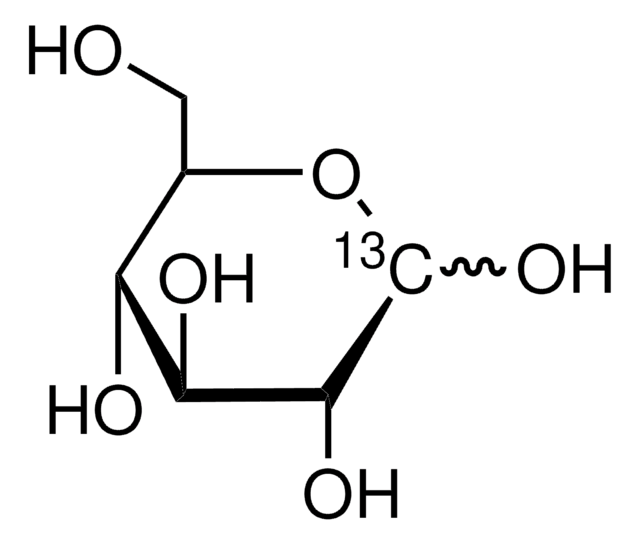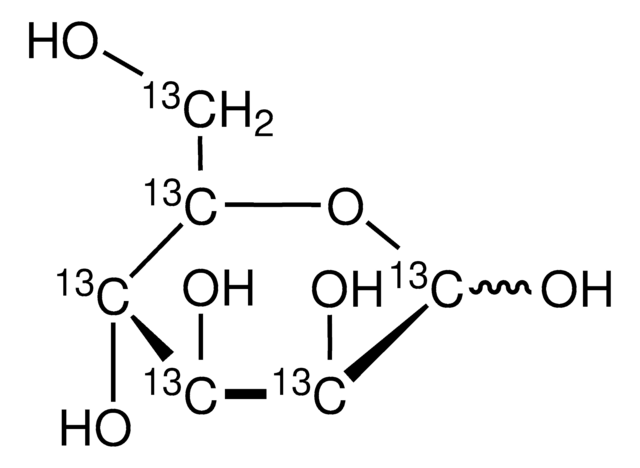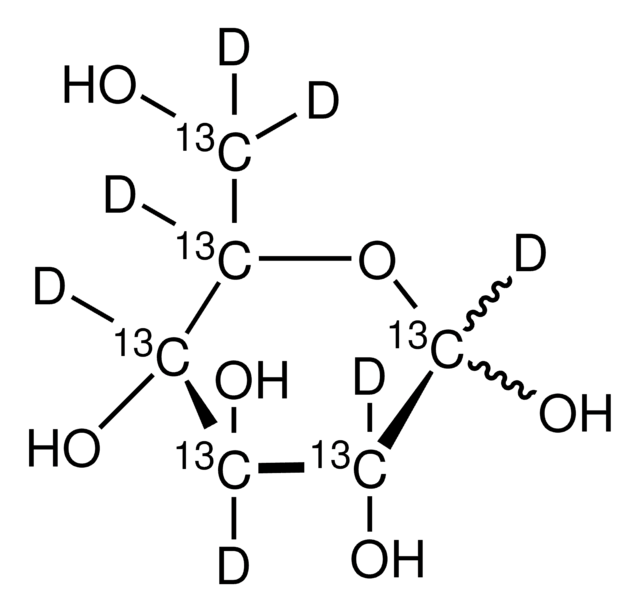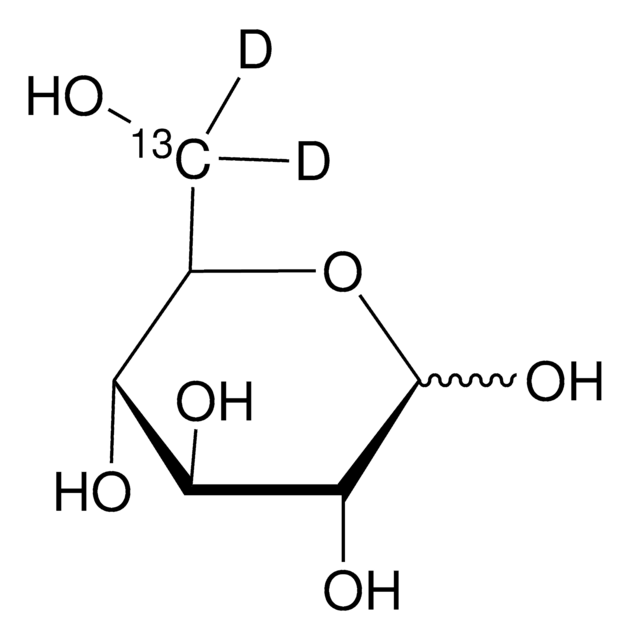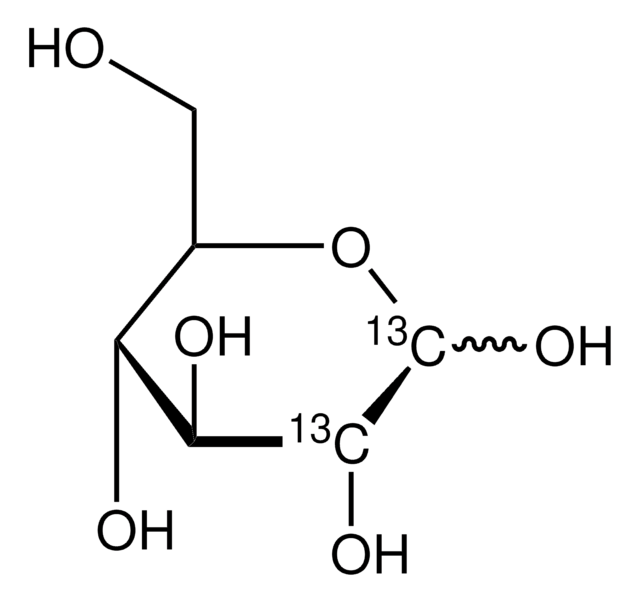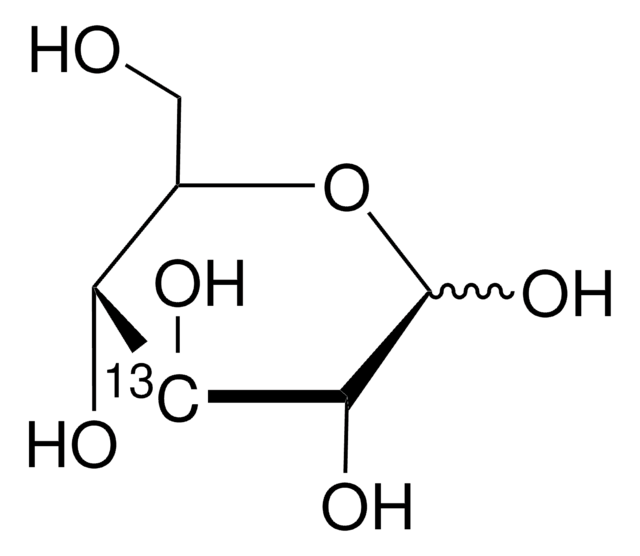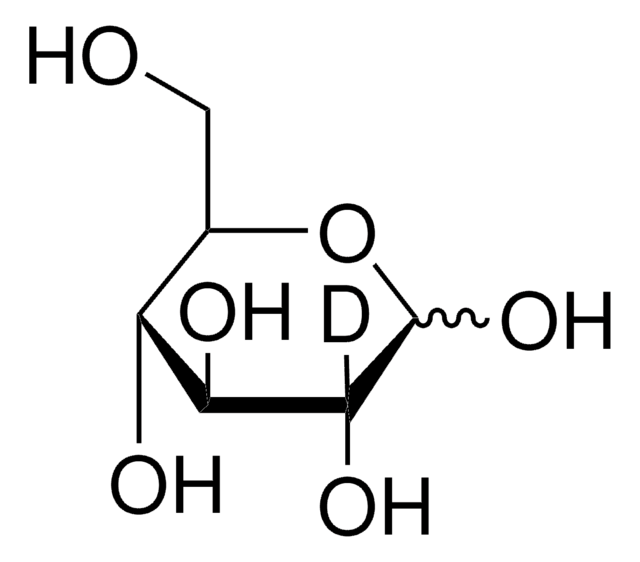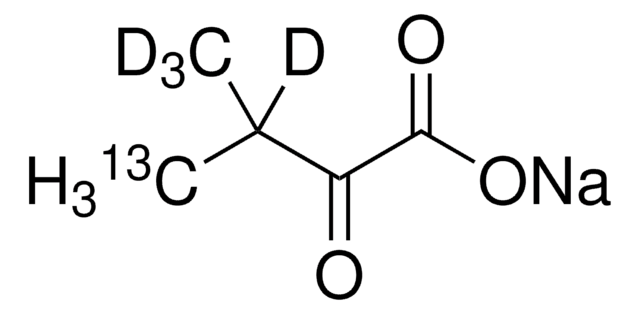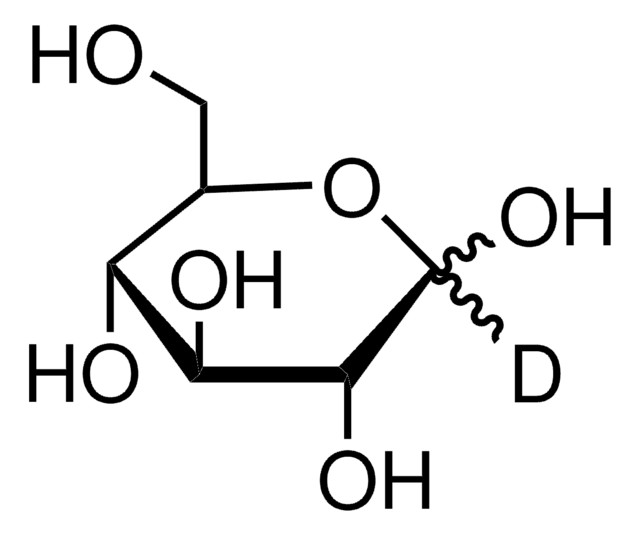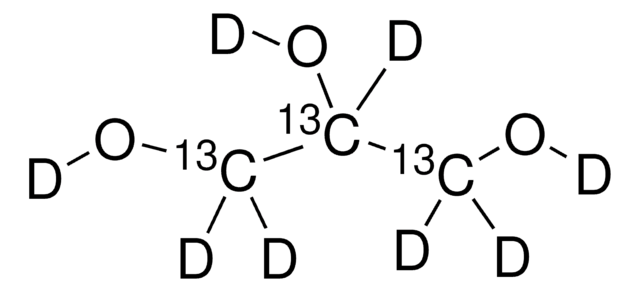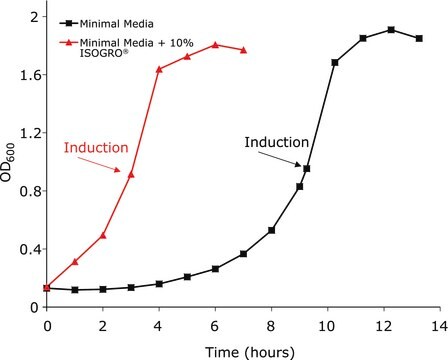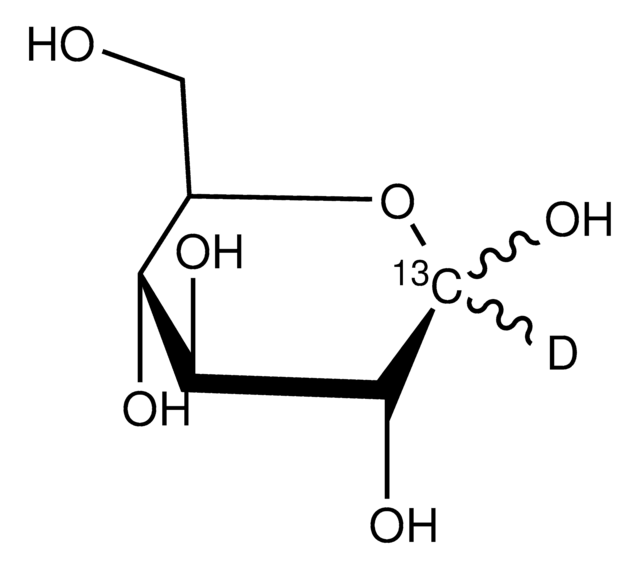552151
D-Glucose-13C6,1,2,3,4,5,6,6-d7
97 atom % D, 99 atom % 13C
Synonym(s):
Deuterated Glucose, Labeled Glucose, D-Glucose-13C6,C-d7, Dextrose-13C6,C-d7
About This Item
Recommended Products
isotopic purity
99 atom % 13C
97 atom % D
Quality Level
Assay
99% (CP)
form
powder
optical activity
[α]25/D +52.0°, c = 2 in H2O (trace NH4OH)
technique(s)
bio NMR: suitable
protein expression: suitable
mp
150-152 °C (lit.)
mass shift
M+13
storage temp.
room temp
SMILES string
[2H][13C](=O)[13C@]([2H])(O)[13C@@]([2H])(O)[13C@]([2H])(O)[13C@]([2H])(O)[13C]([2H])([2H])O
InChI
1S/C6H12O6/c7-1-3(9)5(11)6(12)4(10)2-8/h1,3-6,8-12H,2H2/t3-,4+,5+,6+/m0/s1/i1+1D,2+1D2,3+1D,4+1D,5+1D,6+1D
InChI key
GZCGUPFRVQAUEE-VVZLUFAVSA-N
Looking for similar products? Visit Product Comparison Guide
Related Categories
General description
Biochem/physiol Actions
Packaging
Storage Class Code
11 - Combustible Solids
WGK
WGK 1
Flash Point(F)
Not applicable
Flash Point(C)
Not applicable
Personal Protective Equipment
Choose from one of the most recent versions:
Already Own This Product?
Find documentation for the products that you have recently purchased in the Document Library.
Customers Also Viewed
Articles
Solid-state NMR on Larger Biomolecules; Sigma-Aldrich.com
We present an article about the hyperpolarization of 13C labeled metabolites, especially pyruvic acid, using dynamic nuclear polarization (DNP) that allows real-time magnetic resonance spectroscopy.
Review the 10 steps of glycolysis in the Embden-Meyerhof-Parnas glycolytic pathway. Easily compare reaction stages and buy the enzymes for your life science research.
Related Content
Protein structure analysis aids in identifying disease biomarkers and drug targets crucial for therapeutic treatments.
Our team of scientists has experience in all areas of research including Life Science, Material Science, Chemical Synthesis, Chromatography, Analytical and many others.
Contact Technical Service